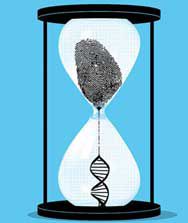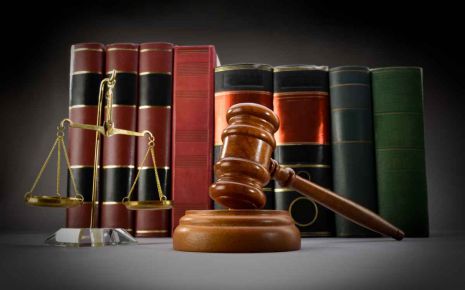Understanding the Role of an Approver in Criminal Justice System
Introduction
An approver is not defined in the Criminal Procedure Code, 1973 or even in the Indian Evidence Act, 1872. The Black Law Dictionary defines "an approver" as an accomplice to an offense who accuses others of the same offense and is admitted as a witness at the discretion of the court to testify against his partners in guilt. The courts have accepted this definition. The principle of accomplice was clarified by the Supreme Court in 1962 in the case of R. K. Dalmia v. Delhi Administration, 1962 AIR 1821. An accomplice is someone who voluntarily aids or takes part in a crime for which the accused is facing trial; however, not every approver is an accomplice.
He is a particeps criminis and in the case where he provides testimony against the co-partners in crime for a pardon provided by the court, the accomplice is known as an approver. The term "approver" is usually applied to a person, supposed to be directly or indirectly concerned in or privy to an offence to whom a pardon is granted under section 337 of the CrPC with a view to securing his testimony against other persons guilty of the offence.
The procedure laid down in section 337 has often to be resorted to in cases of organised crime like dacoities, when no independent evidence is available to bring the offenders to book.
And the Judicial Magistrates in the district holding First class powers are competent to tender pardon during inquiry or trial. Needless to say, the courts exercising the power of sessions and the Special Judges appointed under the Criminal Law Amendment Act, 1952 also enjoy such powers.
Relevant provisions in the CrPC and Indian Evidence Act, 1872 pertaining to how an approver is questioned and handled:
Should an evaluation of the details and situation uncovered from the police investigation of a confession, along with any verification by a magistrate outlined in Regulation 283, reveal that the testimony of the confessing defendant is critical, then in compliance with Police Regulations of Bengal Number 459, the public prosecutor will present a request to the Magistrate to extend forgiveness to the defendant and examine them as a witness for the prosecution under Sub-section (1) of section 306 of the Code of Criminal Procedure. The application will not be made until the Superintendent of Police approves it. Upon acceptance of the pardon, the procedures laid out in Sub-sections (2) and (3) will be followed.
Second, once that hurdle is passed, the story the approver tells in relation to the accused before the trial must involve him in such a way as to reach a conclusion of guilt beyond a reasonable doubt. In rare cases, taking into account all the factors, circumstances and situations governing the particular case, a conviction may be permissible based on unsubstantiated evidence of the approver which the Court believes with certainty to be true and reliable.
However, the approver's statement must be corroborated by factual details that closely bridge the distance between the crime and the criminal. Certain persuasive features of involvement revealed by an approver belonging directly to the accused, if reliable, the touchstone of other independent credible evidence, would provide the necessary certainty to accept his testimony on which conviction can be based. Ravinder Singh v. State of Haryana, 1975 Cri LJ 765 at pp. 769, 770 (SC): AIR 1975 SC 856
It is thus clear that an unequivocal rule has been made to the effect that though a conviction may be based on the uncorroborated evidence of an accomplice, yet as a rule of prudence it is not safe to rely on the uncorroborated testimony of an approver as required according to illustration (b) of Section 114 of the Indian Evidence Act, 1872.
Approvers To Be Kept In Judicial Custody Until Close Of Trial:
An approver granted a pardon under section 337, Criminal Procedure Code, has to be "detained in custody" until the termination of the trial. The word "custody" as used in section 337(3), Criminal Procedure Code has not been defined anywhere in the Code, but the High Court has held in a case that this "custody" means judicial and not Police custody. Therefore, the Court must order the detention of an approver in a judicial lock-up.
The practice of detaining approvers in Police custody is not correct. It was also pointed out that in an appropriate case, High Court can release the approver on bail in exercise of its inherent power u/s 482 of Criminal Procedure Code....Tariq Ahmed Dar v. National Investigation Agency, 2023 SCC Online J&K 236, decided on 11-04-2023.
The court in Shanker v. State of Tamil Nadu Shanker, 1994 SCC (4) 478 held that when an accomplice turns into an approver, he acquires the status of a prosecution witness. The evidence provided by the approver has to complete two conditions, firstly, the evidence should be reliable, and secondly, the testimony provided by him must be adequately corroborated.
Discovery of the articles is sufficient corroboration of approver's statement. AIR 1923 Lahore 389
The first test of reliability of the evidence of the approver and the accomplice is that the court should be satisfied that there is nothing inherently impossible in his evidence. AIR 1970 SC 1330
The object of tendering pardon to anaccused has got a consequential effect on the case. Tendering of a pardon to an accomplice is given in cases where grave offence is alleged to have been committed by more than one accused aimed at with the object that the evidence of the accomplice since granted pardon may bring home the charge against the rest. State of A.P. v. Cheemalapati Ganeswara, AIR 1963 SC 1850.
The policy underlying behind granting pardon to the approver is to plug the holes for the accused to escape from punishment. Alagirisami, ILR 33 Mad 514.
Sometimes a question may arise as to when a pardon could be given to an accomplice. It has been held in the case of Ismail Punju v. Emperor, 26 Cr LJ 1115, that pardon could be given during investigation. The case decided by the High Court of Rajasthan in Umakrishna, AIR 1956 Ajmer 57 did not endorse any different view.
The pardon can also be given at the time of trial or inquiry where the other accused being in absconsion stands no bar. It can even be extended after framing of charge. Mangu v. Emperor, 22 Cr LJ 255.
Conclusion
An individual involved in a crime but who eventually chooses to testify against their co-accused is referred to as an "approver". Typically involved in the criminal activity or conspiracy alongside the main accused or other individuals, an approver is seen as an accomplice or co-conspirator. Providing evidence or testimony against their co-accused or accomplices in crime is an act that can transform an involved individual into an approver in the legal world. Approvers are essential in criminal cases, particularly in situations where organized crime, conspiracy, or complicated criminal activities come into play.
References:
Written By: Md. Imran Wahab, IPS, IGP, Provisioning, West Bengal
Email: [email protected], Ph no: 9836576565
An approver is not defined in the Criminal Procedure Code, 1973 or even in the Indian Evidence Act, 1872. The Black Law Dictionary defines "an approver" as an accomplice to an offense who accuses others of the same offense and is admitted as a witness at the discretion of the court to testify against his partners in guilt. The courts have accepted this definition. The principle of accomplice was clarified by the Supreme Court in 1962 in the case of R. K. Dalmia v. Delhi Administration, 1962 AIR 1821. An accomplice is someone who voluntarily aids or takes part in a crime for which the accused is facing trial; however, not every approver is an accomplice.
He is a particeps criminis and in the case where he provides testimony against the co-partners in crime for a pardon provided by the court, the accomplice is known as an approver. The term "approver" is usually applied to a person, supposed to be directly or indirectly concerned in or privy to an offence to whom a pardon is granted under section 337 of the CrPC with a view to securing his testimony against other persons guilty of the offence.
The procedure laid down in section 337 has often to be resorted to in cases of organised crime like dacoities, when no independent evidence is available to bring the offenders to book.
Officers Competent To Tender Pardon
The Judicial Magistrates in the district and the Metropolitan Magistrates in addition to Chief Magistrates are competent to tender pardon. But sub-section (1) of Section 306 of the CrPC further lays down that the Chief Judicial Magistrates in the district enjoy the powers of tendering pardon to the accomplice during investigation, inquiry and trial.And the Judicial Magistrates in the district holding First class powers are competent to tender pardon during inquiry or trial. Needless to say, the courts exercising the power of sessions and the Special Judges appointed under the Criminal Law Amendment Act, 1952 also enjoy such powers.
Relevant provisions in the CrPC and Indian Evidence Act, 1872 pertaining to how an approver is questioned and handled:
- In order to obtain evidence from someone believed to have played a role in an offense covered by Section 306 CrPC, the Chief Judicial Magistrate or a Metropolitan Magistrate can offer a pardon if the person reveals everything they know about the offense and any other individuals involved. This option is available at any point during the investigation, inquiry, or trial of the offense and can also be offered by a Magistrate of the first class during an inquiry or trial stage. By accepting the pardon, the individual must provide a complete and truthful disclosure of all details related to the offense and the involvement of others as principal or abettor.
- After commitment of a case but before passing a judgment, as stated in Section 307 CrPC, the Court that received the case can offer pardon to anyone believed to have even indirectly participated in the offense, as a means to acquire their testimony at trial.
- The provisions outlined in Section 308 of the CrPC dictate that if a person who has accepted a pardon offer under either Section 306 or Section 307 is found to have intentionally hidden any pertinent information or provided false testimony, they can be subjected to trial for the original offense for which they received the pardon, or any other related offenses they may have committed. The provision of false evidence can result in charges, though the High Court must give their approval. However, the individual in question cannot be tried alongside any other involved parties, and Sections 195 and 340 CrPC do not apply to this particular crime.
- Contrary to popular belief, an accomplice can actually serve as a viable witness in a court of law when it comes to accusing someone of a crime - this is stated in section 133 of the Indian Evidence Act, 1872. To convict an individual with the help of an accomplice's testimony, surprisingly, falls under legal practices. However, the court may still choose to treat an accomplice as an unreliable source, as illustrated in section 114(b) of the same act where it is stated that their testimony can only be considered trustworthy if it is corroborated in material particulars.
- The approver, an accomplice who decides to testify against co-accused in exchange for a pardon, is subject to examination and treatment under the CrPC. Safeguards are in place to prevent coerced or deceitful confessions, and the approver's testimony must be supported by corroborative evidence as per the law.
Provision of co-accused under Indian law
According to section 30 of the Indian Evidence Act, 1872: For trials where multiple individuals are jointly being prosecuted for a shared crime, any confession made by one of them that implicates themselves and others can be taken into account by the court. This includes using the confession as evidence against the other individuals and the person who made the confession.Should an evaluation of the details and situation uncovered from the police investigation of a confession, along with any verification by a magistrate outlined in Regulation 283, reveal that the testimony of the confessing defendant is critical, then in compliance with Police Regulations of Bengal Number 459, the public prosecutor will present a request to the Magistrate to extend forgiveness to the defendant and examine them as a witness for the prosecution under Sub-section (1) of section 306 of the Code of Criminal Procedure. The application will not be made until the Superintendent of Police approves it. Upon acceptance of the pardon, the procedures laid out in Sub-sections (2) and (3) will be followed.
Supreme Court's View on an Approver
The approver is a most unworthy friend, if at all, and having negotiated immunity, he must prove his credibility in court. This test is met, first, if the story he tells implicates him in the crime and appears to be a natural and probable catalogue of events that happened. If the story is presented in minute detail in accordance with reality, it will probably save it from being rejected by the court.Second, once that hurdle is passed, the story the approver tells in relation to the accused before the trial must involve him in such a way as to reach a conclusion of guilt beyond a reasonable doubt. In rare cases, taking into account all the factors, circumstances and situations governing the particular case, a conviction may be permissible based on unsubstantiated evidence of the approver which the Court believes with certainty to be true and reliable.
However, the approver's statement must be corroborated by factual details that closely bridge the distance between the crime and the criminal. Certain persuasive features of involvement revealed by an approver belonging directly to the accused, if reliable, the touchstone of other independent credible evidence, would provide the necessary certainty to accept his testimony on which conviction can be based. Ravinder Singh v. State of Haryana, 1975 Cri LJ 765 at pp. 769, 770 (SC): AIR 1975 SC 856
It is thus clear that an unequivocal rule has been made to the effect that though a conviction may be based on the uncorroborated evidence of an accomplice, yet as a rule of prudence it is not safe to rely on the uncorroborated testimony of an approver as required according to illustration (b) of Section 114 of the Indian Evidence Act, 1872.
Approvers To Be Kept In Judicial Custody Until Close Of Trial:
An approver granted a pardon under section 337, Criminal Procedure Code, has to be "detained in custody" until the termination of the trial. The word "custody" as used in section 337(3), Criminal Procedure Code has not been defined anywhere in the Code, but the High Court has held in a case that this "custody" means judicial and not Police custody. Therefore, the Court must order the detention of an approver in a judicial lock-up.
The practice of detaining approvers in Police custody is not correct. It was also pointed out that in an appropriate case, High Court can release the approver on bail in exercise of its inherent power u/s 482 of Criminal Procedure Code....Tariq Ahmed Dar v. National Investigation Agency, 2023 SCC Online J&K 236, decided on 11-04-2023.
The court in Shanker v. State of Tamil Nadu Shanker, 1994 SCC (4) 478 held that when an accomplice turns into an approver, he acquires the status of a prosecution witness. The evidence provided by the approver has to complete two conditions, firstly, the evidence should be reliable, and secondly, the testimony provided by him must be adequately corroborated.
Different Other Court Judgments on Approver
Approver's evidence cannot be accepted unless he himself took part in the crime. AIR 1923 Nag. 248Discovery of the articles is sufficient corroboration of approver's statement. AIR 1923 Lahore 389
The first test of reliability of the evidence of the approver and the accomplice is that the court should be satisfied that there is nothing inherently impossible in his evidence. AIR 1970 SC 1330
The object of tendering pardon to anaccused has got a consequential effect on the case. Tendering of a pardon to an accomplice is given in cases where grave offence is alleged to have been committed by more than one accused aimed at with the object that the evidence of the accomplice since granted pardon may bring home the charge against the rest. State of A.P. v. Cheemalapati Ganeswara, AIR 1963 SC 1850.
The policy underlying behind granting pardon to the approver is to plug the holes for the accused to escape from punishment. Alagirisami, ILR 33 Mad 514.
Sometimes a question may arise as to when a pardon could be given to an accomplice. It has been held in the case of Ismail Punju v. Emperor, 26 Cr LJ 1115, that pardon could be given during investigation. The case decided by the High Court of Rajasthan in Umakrishna, AIR 1956 Ajmer 57 did not endorse any different view.
The pardon can also be given at the time of trial or inquiry where the other accused being in absconsion stands no bar. It can even be extended after framing of charge. Mangu v. Emperor, 22 Cr LJ 255.
Conclusion
An individual involved in a crime but who eventually chooses to testify against their co-accused is referred to as an "approver". Typically involved in the criminal activity or conspiracy alongside the main accused or other individuals, an approver is seen as an accomplice or co-conspirator. Providing evidence or testimony against their co-accused or accomplices in crime is an act that can transform an involved individual into an approver in the legal world. Approvers are essential in criminal cases, particularly in situations where organized crime, conspiracy, or complicated criminal activities come into play.
References:
- Criminal Law Research & Review, who is an Approver? Can he/she be a competent witness? https://crlreview.in/2018/02/17/who-is-an-approver-can-he-she-be-a-competent-witness/
- High Court Chandigarh Rules https://highcourtchd.gov.in/sub_pages/left_menu/Rules_orders/high_court_rules/vol-III-pdf/chap14.pdf
- Difference between accomplice, approver and co-accused? By Tosani Lal, https://lawtimesjournal.in/difference-between-accomplice-approver-and-co-accused/ November 5, 2020
- Tariq Ahmed Dar v. National Investigation Agency, 2023 SCC Online J&K 236, https://www.scconline.com/blog/post/2023/04/26/s-Tariq decided on 11-04-2023
- Approver granted pardon under Section 306 CrPC and released on bail https://taxguru.in/corporate-law/approver-granted-pardon-section-306-crpc-released-bail.html
- Delhi High Court Rules https://delhihighcourt.nic.in/uploads/courtrule/CourtRuleFile_6G38F1T4.PD
- Research Paper on SSRN https://papers.ssrn.com/sol3/Delivery.cfm/SSRN_ID3733556_code4365470.pdf?abstractid=3696635&mirid=1
Written By: Md. Imran Wahab, IPS, IGP, Provisioning, West Bengal
Email: [email protected], Ph no: 9836576565
Law Article in India
Legal Question & Answers
Lawyers in India - Search By City
LawArticles
How To File For Mutual Divorce In Delhi

How To File For Mutual Divorce In Delhi Mutual Consent Divorce is the Simplest Way to Obtain a D...
Increased Age For Girls Marriage

It is hoped that the Prohibition of Child Marriage (Amendment) Bill, 2021, which intends to inc...
Facade of Social Media

One may very easily get absorbed in the lives of others as one scrolls through a Facebook news ...
Section 482 CrPc - Quashing Of FIR: Guid...

The Inherent power under Section 482 in The Code Of Criminal Procedure, 1973 (37th Chapter of t...
The Uniform Civil Code (UCC) in India: A...

The Uniform Civil Code (UCC) is a concept that proposes the unification of personal laws across...
Role Of Artificial Intelligence In Legal...

Artificial intelligence (AI) is revolutionizing various sectors of the economy, and the legal i...








Please Drop Your Comments